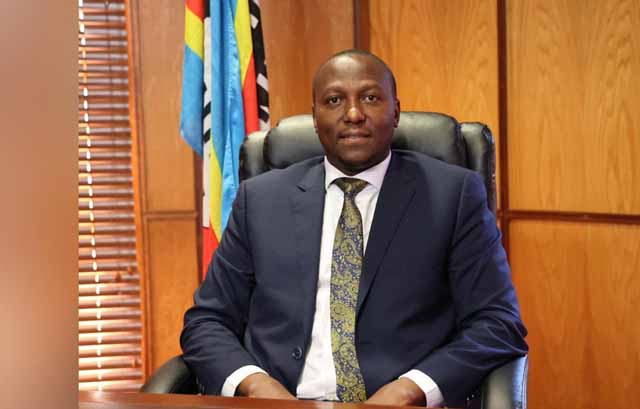By Nokwanda Sibandze | 2024-12-23

In a world where rapid modernisation and globalisation often overshadow cultural heritage, Yung Tmpo, a talented Swazi musician, stands out as a beacon of cultural pride and authenticity.
Through his music and personal life, he shows how tradition and modernity can coexist harmoniously, offering a blueprint for preserving identity in a constantly evolving world.
His experiences at the Incwala ceremony, one of Eswatini’s most significant cultural events, reflect his deep connection to his roots.
In a conversation with the young artist, he shared insights into his cultural journey, his thoughts on balancing tradition with modernity, and his role in keeping Swati traditions alive.
A Father’s Legacy:
The Foundation of Cultural Awareness
For Yung Tmpo, embracing culture began at home. He credits his father as the driving force behind his cultural awareness and pride. “My father, to be honest, is the primary reason. He’s a man of culture and believes in embracing your roots,” Tmpo explained.
This early exposure to Swazi traditions instilled in him a sense of belonging and responsibility. His father’s emphasis on cultural identity served as the foundation for Tmpo’s journey of self-discovery, influencing how he navigates his identity in a modern world.
Incwala: A Celebration of Unity and IdentityThe Incwala ceremony, often referred to as Eswatini’s national prayer, holds a special place in Yung Tmpo’s heart. For him, it’s more than just a cultural event; it’s a spiritual and communal experience.
“To me, lisiko letfu lihle kakhulu (our tradition is beautiful),” he said, describing the atmosphere at Incwala.
“The main day stands out the most, with people from across the country and beyond coming together to celebrate our culture. The effort people put into kuvunula (traditional attire) and appearances is heartwarming. Sibabahle silive (we are a beautiful nation).”
Incwala symbolises unity, identity, and renewal.
It’s a time when people from all walks of life come together to reaffirm their connection to their roots.
For young participants like Yung Tmpo, it’s an opportunity to embrace their heritage and find their place within a larger cultural narrative.
“Through culture, we are uniform,” he reflected. “It makes me feel bigger than just me—it opens me up to a bigger world where my background doesn’t matter but brings us together as a whole.”
The Struggle to Balance Tradition and Modernity
Growing up in a digital age, Yung Tmpo acknowledges the challenges of maintaining cultural traditions. However, he believes that the concept of “balancing” tradition and modernity doesn’t fully capture the essence of cultural identity.
“Tradition is very important. I may live very modern, but ngiliSwati (I am Swazi), and I am proud of my roots and my culture,” he said. “Culture is who we are at heart—what we represent and stand for. It’s not something we should try to include; we should live and breathe it at all times.”
This perspective highlights the importance of cultural identity as a constant in an ever-changing world. For Yung Tmpo, living authentically as a Swazi means carrying his heritage with him in everything he does, rather than seeing culture as something to be compartmentalized or set aside.
Music as a
Reflection of Culture
As a musician, Yung Tmpo’s Swazi identity naturally seeps into his work, though not in a forced or deliberate way. “It’s not a direct process, and I can’t pinpoint it,” he explained.
“Lyrically, I don’t think I mention tradition outright, but I use Swazi slang and make references that resonate with emaSwati.”
His approach to music is rooted in authenticity and maturity.
“As I get older, I’m more comfortable making music that’s closer to home, whether it’s in the wordplay or vernacular. It’s a form of maturity.”
Through his music, Yung Tmpo demonstrates that cultural preservation doesn’t always require overt declarations.
Sometimes, it’s the subtle, authentic incorporation of one’s heritage that leaves the most lasting impact.
The Harmony Between Traditional and Modern MusicYung Tmpo strongly believes that traditional and modern music can coexist.
“Music is a feeling; it doesn’t have boundaries or social standards.
Traditional and modern genres can merge as long as it feels right,” he said.While he doesn’t actively blend traditional and modern styles in his own work, Tmpo acknowledges the potential of such collaborations to bridge generational gaps.
For him, music serves as a universal language that can connect people across cultural and temporal divides.
This belief underscores the importance of using creative platforms to preserve cultural heritage while appealing to contemporary audiences. By finding innovative ways to merge the old with the new, artists can ensure that tradition remains relevant and accessible.
Cultural Preservation
in a Globalized World
In today’s interconnected world, where social media and globalisation dominate, Yung Tmpo emphasises the importance of staying rooted in one’s cultural identity.
“We live in an era where there are no borders anymore. If you don’t know who you are, you can easily get lost,” he cautioned.He warns against letting modernisation overshadow cultural identity.
“Revolution is good, but it can also be bad. This fine line is where culture steps in. We have to know where to stop taking from others and stick to kwasekhaya (what’s ours).”
Tmpo’s perspective reflects a broader concern about cultural erosion. As younger generations are increasingly exposed to global influences, there’s a risk of losing touch with their roots.
This makes cultural preservation not just a personal responsibility but a communal effort.
Lessons from Incwala: Community and Authenticity
Participating in the Incwala ceremony has taught Yung Tmpo invaluable lessons about community and authenticity. “It’s not worth worrying about making my music digestible to everyone.
The ones who get it will get it,” he said.
This perspective mirrors his experiences at Incwala, where diverse individuals come together under a shared cultural identity. “Most times, it feels like we all speak the same language. It’s the same with music; in some ways, it’s a universal language.”
The values of unity and authenticity he’s learned from Incwala have profoundly influenced his approach to music, reminding him to stay true to himself and his heritage.
A Message to Disconnected Youth
For young people who feel disconnected from their culture, Yung Tmpo offers words of encouragement.
“A connection isn’t built overnight,” he said. “Sometimes elders push it so hard that we lose interest. Instead, take it step by step.
Do your research, ask questions, and attend cultural events. The past makes the present, so it can’t be outdated.”
He also emphasized the importance of learning from elders.
“Kuvakasha kaGogo (visiting your grandmother) is crucial.
Elders hold the key to understanding our traditions and their significance.”
Tmpo’s advice reflects a thoughtful approach to cultural preservation, encouraging young people to engage with their heritage at their own pace.
The Broader Impact of Cultural Preservation
Cultural events like Incwala are more than just traditions—they are lifelines for preserving a community’s identity and unity. As Yung Tmpo aptly put it, “Through culture, we are uniform. It brings us together as one.”Preserving cultural traditions is not just about honoring the past; it’s about shaping the future.
For Yung Tmpo, embracing his culture has given him a strong sense of identity and purpose. His journey serves as an inspiring example for others, showing that tradition and modernity can coexist to create a rich, dynamic identity.
Conclusion: Bridging Two Worlds
Yung Tmpo’s story is a testament to the power of cultural heritage in a rapidly modernizing world.
Through his music, his experiences at Incwala, and his unwavering pride in his roots, he demonstrates that culture is not a relic of the past but a living, breathing part of who we are.As he continues to navigate the intersection of tradition and modernity, Yung Tmpo offers a compelling vision for the future—one where young people embrace their heritage, celebrate their identity, and use their platforms to keep the spirit of their culture alive.In his own words:
“The past makes the present, so it can’t be outdated.” And through voices like Yung Tmpo’s, the past will continue to shape a vibrant and meaningful future.
share story
Post Your Comments Below

I know many people are already in the holiday spirit, but the stark reality is that amidst the jo...

While most people will be exchanging gifts in the midst of fun and excitement of Christmas, Prime...
SOCCER – With the status quo of the club still in limbo, Manzini Wanderers’ top offic...
All material © Swazi Observer. Material may not be published or reproduced in any form without prior written permission.
Design by Real Image Internet